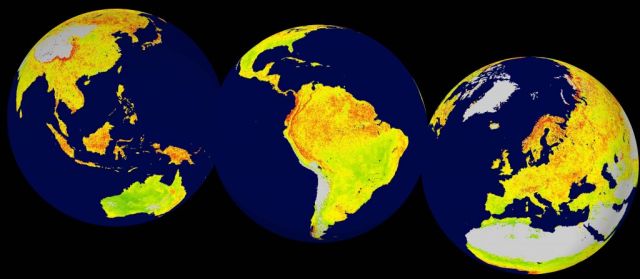
As we reported last week, the White House hosted a cross-agency meeting regarding a plan to create an advisory committee specifically to attack the conclusions of its own climate scientists. Details of that meeting, and the plan that ensued, are now starting to leak out.
To begin with, The Washington Post reports that the motivation for the effort was made clear during the meeting: Trump was upset by the release of the National Climate Assessment. The report is required by law, and its conclusions were solidly within the mainstream of the scientific community’s conclusions on the climate, leaving very little room for attack. So the White House has decided to select a group of government scientists that include members who are skeptical toward its conclusions.
The group will be structured so that it can do its work off the record. The Post notes that a formal Federal Advisory Committee would include having meetings in public and creating extensive public records of its deliberations. As a result, the new plan is to create an ad-hoc working group instead, which avoids the need for any public disclosure.
Normally, these sorts of working groups would be expected to include members of the government. As noted above, however, the National Climate Assessment was firmly within mainstream scientific thought; the planned “adversarial peer review” will therefore require recruiting people outside of science’s mainstream. Conveniently, William Happer, who had been promoting this review to former EPA administrator Scott Pruitt, is well connected to the far-from-mainstream when it comes to climate science. Happer is supposedly organizing this working group with Steve Koonin, an NYU physics professor who frequently writes anti-climate-science op-eds for the Wall Street Journal.
Beyond those two people, E&E News reports the planned working group composition reads like a “who’s who” of people who have been invited to testify before the US House Science Committee while it was under the leadership of Lamar Smith and had an antagonistic approach to many areas of research. Proposed members include people like Judith Curry, who thinks current warming may be part of a natural cycle but hasn’t identified what in particular may be cycling. John Christy is also on the list, and his previous testimony has been criticized for relying on graphs that have offset baselines and no error bars.
Also supposedly on tap is Richard Lindzen, a retired MIT scientist who has been on the payroll of a libertarian think tank in recent years. Collectively, this is precisely the group you would name if you wanted people to disagree with the conclusions of most climate scientists while providing a veneer of academic respectability. The fact that it’s difficult to think of more than two or three additional US scientists that could serve the same purpose, however, provides a sense of how far outside the mainstream this group would be.
The same E&E report suggests a strategy for attacking the National Climate Assessment has already been mapped out: focus on the areas that the scientists have identified as uncertain, typically conclusions that are rated as “low confidence” or “medium confidence.” Apparently, by poking holes in the weakest conclusions, the group hopes that the high-confidence conclusions in the same report will also seem doubtful.
Any sort of review of the National Climate Assessment (adversarial or not), however, will be redundant. Katharine Hayhoe, a climate scientist and one of the report’s authors, detailed the extensive review the report has already received, including open public comment and hundreds of pages of suggestions from the National Academies of Science (all reviews can be downloaded with the report). “Who is going to review the federal climate reports who has not already had the chance?” she asks. “The answer is no one.”
https://arstechnica.com/?p=1464063

